Changing the world, one dinner at a time
- Published
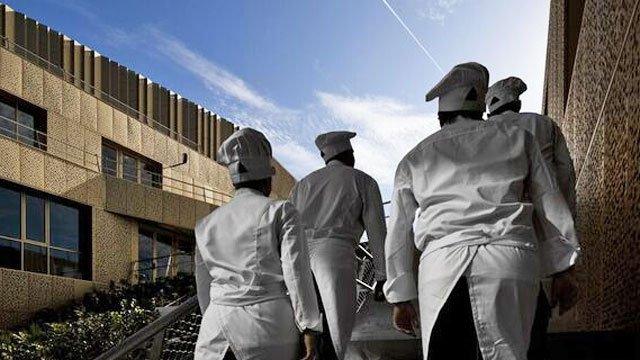
Chefs on the march: Can posh restaurants really become social activists?
When you think of fancy restaurants with indigestion-inducing prices, you don't tend to think of campaigns for social justice.
Ethics and social awareness are not necessarily on the menu when it comes to such upmarket dining.
But an international prize, run by a university in the Basque Country, in Spain, has been trying to change that.
Instead of indulgence and excess, the Basque Culinary World Prize is trying to give good food a social conscience.
Change on the menu
Nominations are being invited for a 100,000 euro (£87,000) prize for a cook who can show their work has been a "motor for change".
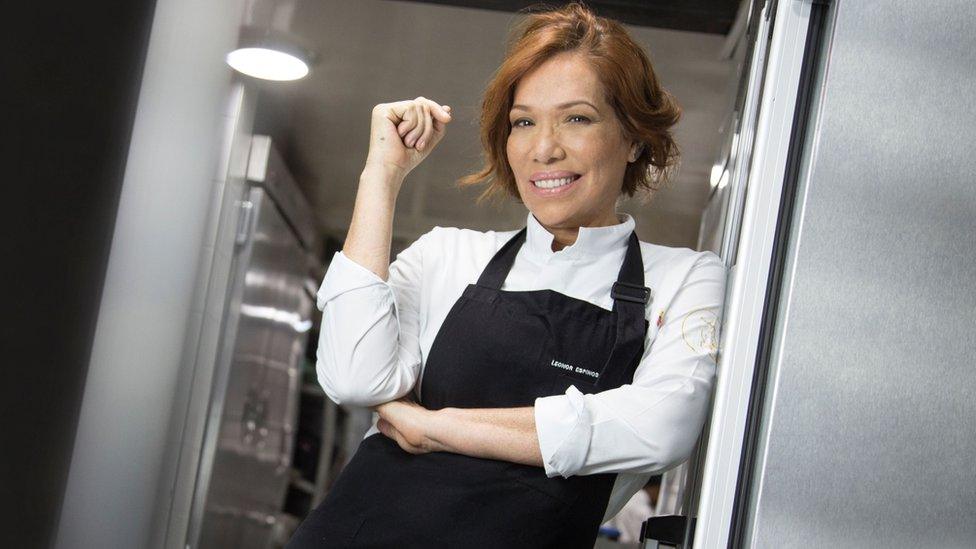
Leonor Espinosa, from Colombia, says winning last year's prize gave a voice to her community
Under the banner of "transforming society through gastronomy", the winning chefs are expected to show how their work can benefit the environment or people's health or education or provide opportunities for the disadvantaged.
This will be the third year that the prize has been awarded. Among the previous finalists has been Alberto Crisci, who runs the Clink charity, in which prisoners are trained to work in restaurants.
He told the launch of this year's prize in London that his training project gave offenders a chance of getting a job when they left prison and helped reduce reoffending.
'Second chance'
More than 800 prisoners have been through the Clink's training projects. As well as learning catering skills, Mr Crisci said it had given them "manners, confidence, discipline and a different attitude towards strangers".
"Everybody deserves a second chance," said Mr Crisci.
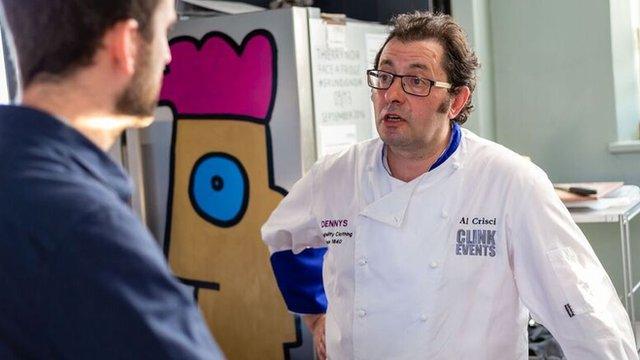
Al Crisci has trained prisoners so they can work in restaurants
The competition, supported by the Basque government, has been set up by the Basque Culinary Centre, a higher education institution entirely dedicated to food.
It's based in San Sebastian, which claims to have one of the highest concentrations of Michelin-starred restaurants in the world. And the idea behind a food-based university was to treat gastronomy with the same academic seriousness as might be given to engineering or economics.
Celebrity chefs might have gained rock star status, but the centre's director, Joxe Mari Aizega, says that the wealth and fame has also brought a new responsibility.
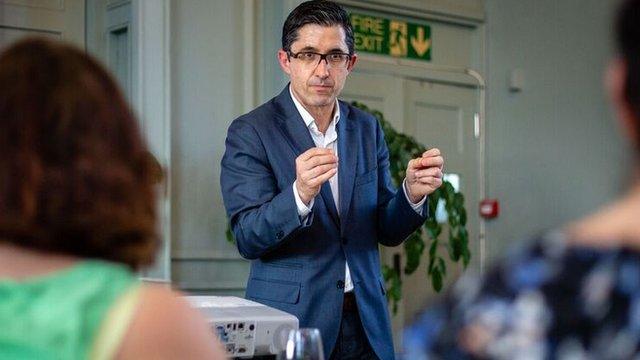
Joxe Mari Aizega says being a great chef now means taking social responsibilities seriously
It's no longer just about serving food to the public, it also has to be about public service.
At the launch of the prize, Brett Graham, one of the top chefs in London, talked about the difference between synthetic and real charity in the food industry.
Volunteering skills
Mr Graham, head chef of the Michelin-starred Ledbury restaurant, said that it should mean more than the type of event where a famous chef would be hired by the super-rich, in the name of raising some cash for a charity.
Instead, along with other leading chefs, he regularly volunteers to cook meals for the disadvantaged and homeless at a day centre near Earl's Court in west London.
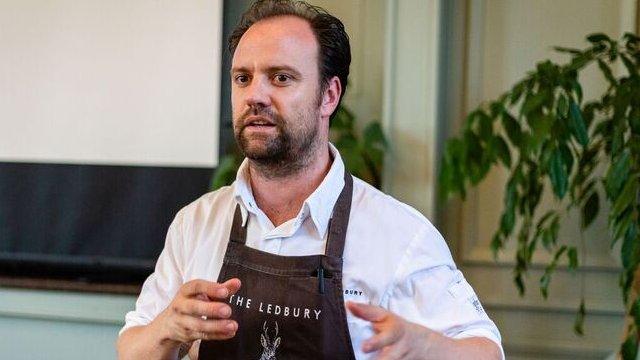
Brett Graham is one of the top chefs who volunteer to cook food at a day centre
The Refettorio Felix, set up by the Italian chef Massimo Bottura, which hosted the launch of the Basque Culinary World Prize, uses donated food that would otherwise be thrown away.
It means some of London's poorest get their meals cooked by chefs from some of the capital's most expensive restaurants.
Mr Graham said it was "so powerful" to see the impact of good nutritious meals being provided for people coming to the drop-in centre.
Local identity
Last year's winner, Leonor Espinosa, from Colombia, had been praised for her work supporting local food producers and for developing a business that offered an alternative to gangs and conflict.
Food was intimately connected to local identity and culture and, she said, winning the prize had given status to the traditional skills that might have been taken for granted.
Ms Espinosa said it was like "breaking the silence" for people who had faced "armed conflict, injustice and exclusion".
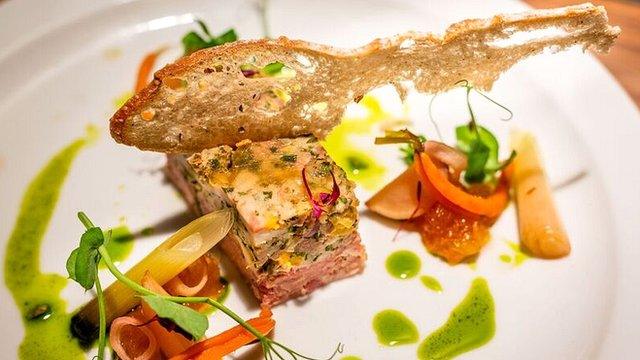
Can elaborate and expensive food become part of a campaign to feed the poorest?
This year's winner will be announced in July at an event in Modena, Italy, by a jury headed by Joan Roca, chef at El Celler de Can Roca, in Girona, Spain.
This has often been claimed as one of the best restaurants in the world - but Mr Roca says the Basque Culinary World Prize, with its twist on food with a social value, has now become the award to collect.
"I think it's the most important gastronomic prize awarded worldwide," he said.

More from Global education
The editor of Global education is sean.coughlan@bbc.co.uk
